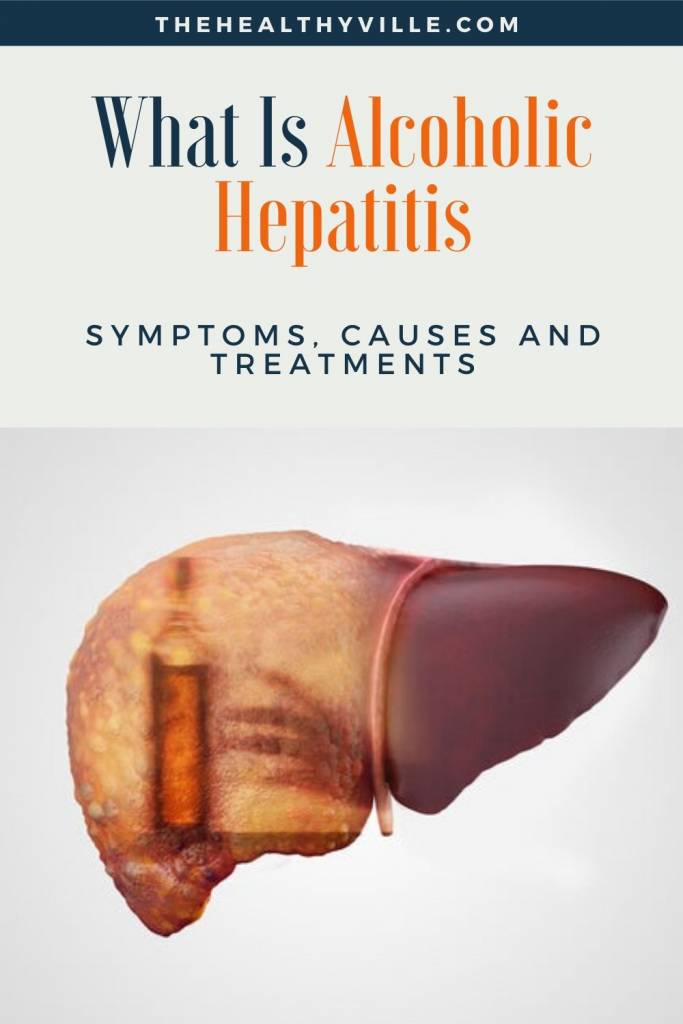What is alcoholic hepatitis? What are its symptoms? When is the time to panic? When to seek treatment from specialists?
Alcohol is a legal drug in most countries and also the most consumed drug worldwide. Often, we tend to underestimate the negative impact it has on the body or even ignore it. For example, few know what alcoholic hepatitis consists of.
Alcoholic hepatitis is a pathology characterized by inflammation of the liver as a result of alcohol consumption. It is an injury that is asymptomatic but, in the long run, can cause irreversible liver damage and sometimes even liver cancer.
The fact that it is asymptomatic makes it almost impossible to calculate the prevalence of this disease. However, almost 35% of people with alcohol dependence suffer from it. Here’s what you need to know about alcoholic hepatitis.
What is alcoholic hepatitis?
Alcoholic hepatitis, as we have mentioned, consists of inflammation of the liver. It is produced, generally, by a prolonged and daily consumption of alcohol. This inflammation produces damage to the organ that can become irreversible if the habit of ingesting this substance is not stopped.
Scientists estimate that for these lesions to appear, you must drink a daily amount of alcohol that varies by sex. That is, men who drink between 30 and 60 grams of alcohol a day for 10 years will surely develop this pathology.
In the case of women, it is enough to ingest between 20 and 40 grams a day. This difference is due to the fact that women have a lower tolerance to alcohol than men, since they have a lower ability to metabolize it in their body.
However, it should be noted that the risk is relative. If a person ingests more grams of alcohol, even in a shorter period of time, the risk increases significantly. The truth is that between 15 and 40% of people with alcoholic hepatitis progress to advanced liver disease.
What are its symptoms?
Alcoholic hepatitis can be symptomatic or not, depending on the degree of liver involvement. Many people are asymptomatic and this injury can only blood tests can detect it.
However, when the disease appears symptomatic, jaundice often occurs. This consists of yellowing of the skin because bilirubin accumulates in the blood. Other common symptoms are nausea and vomiting or loss of appetite.
This means that people with this disorder are often malnourished. Furthermore, alcohol itself decreases appetite, so both factors enhance each other. Another common sign is the feeling of weakness and tiredness.
The problem is that, as alcoholic hepatitis progresses, liver failure can occur. It also has connections with liver steatosis, cirrhosis, and even an increased risk of developing liver cancer.
How to diagnose and treat it?
To diagnose alcoholic hepatitis, the doctor needs to know exactly how much alcohol that person consumes daily. Also, doctors use different tests, like blood tests, liver ultrasound, or other imaging tests.
Treatment consists mainly of stopping drinking. If this is not enough, in some cases corticosteroids can reduce inflammation or a liver transplant may even be necessary.
Alcohol is a very harmful drug
What we must take into account is that alcohol is a very harmful drug for the body. Furthermore, being a socially available drug, we tend to minimize its effect. However, we must try to prevent pathologies such as alcoholic hepatitis.
To do this, if you drink alcohol, try doing it in moderation. Also, if you have hepatitis C, remember that combining it with alcohol increases the risk of more serious liver disease. Finally, it is important to know that there are many therapies and ways to eliminate dependence on this substance.
Don’t forget to SHARE what is alcoholic hepatitis with your friends and family on your social networks!

